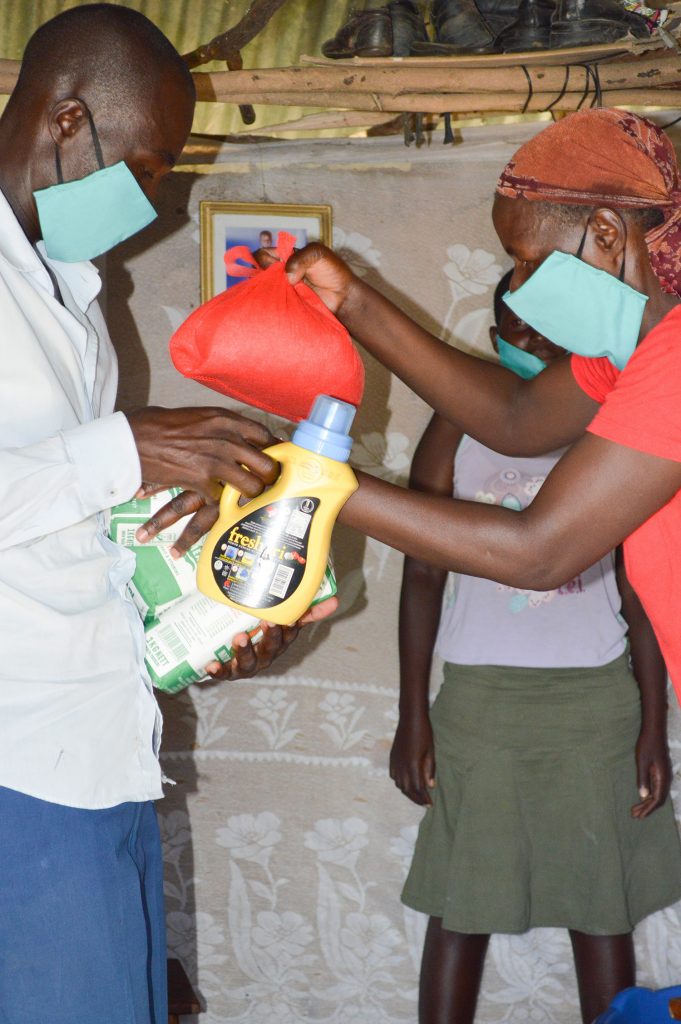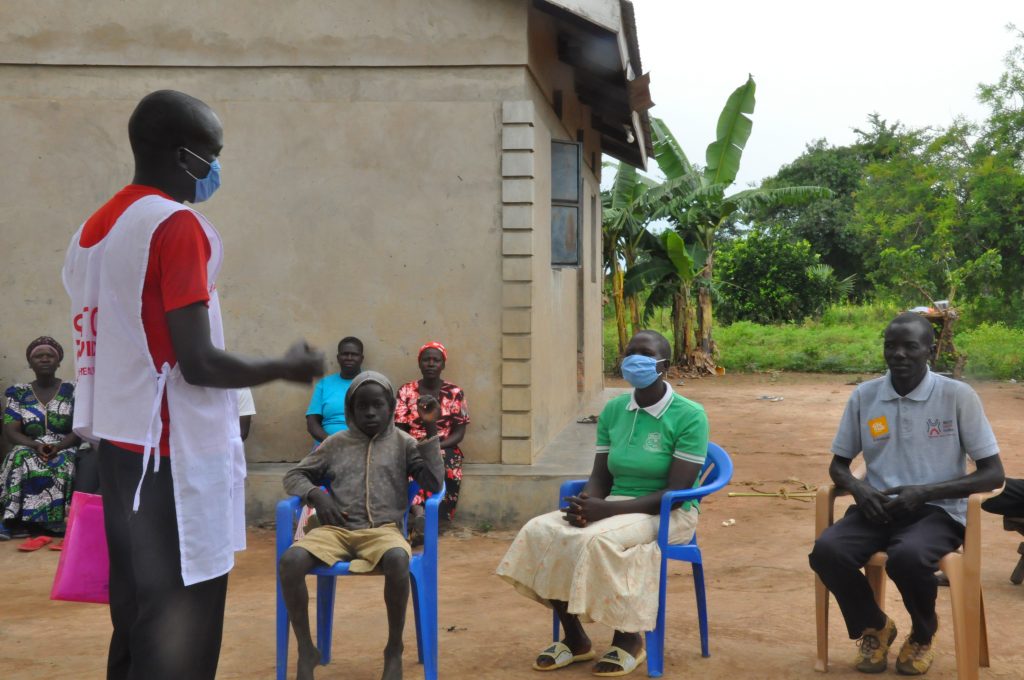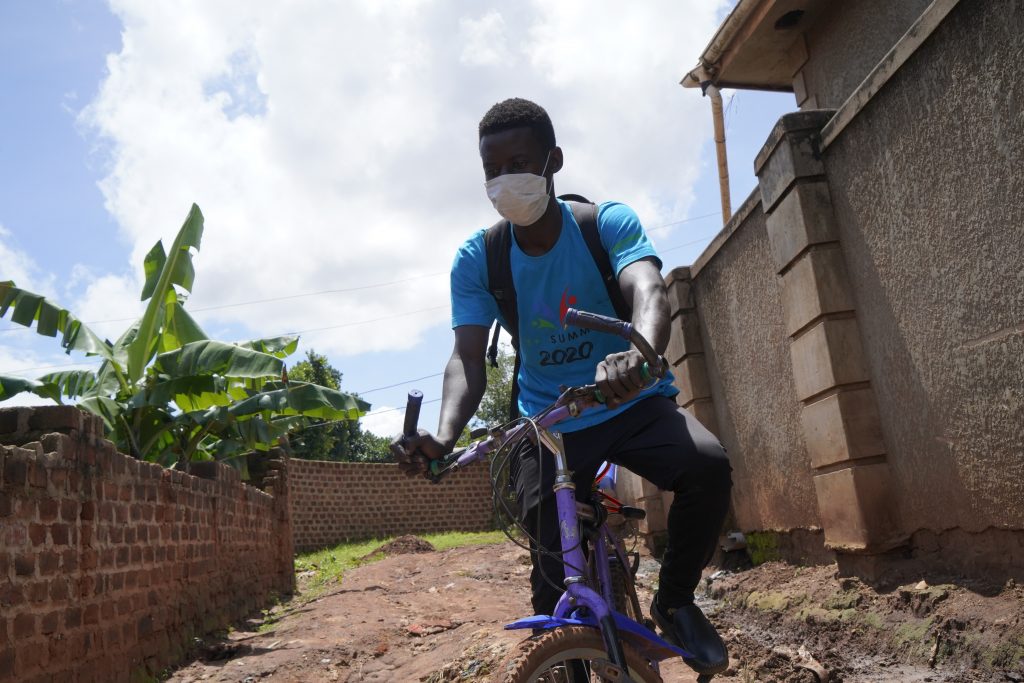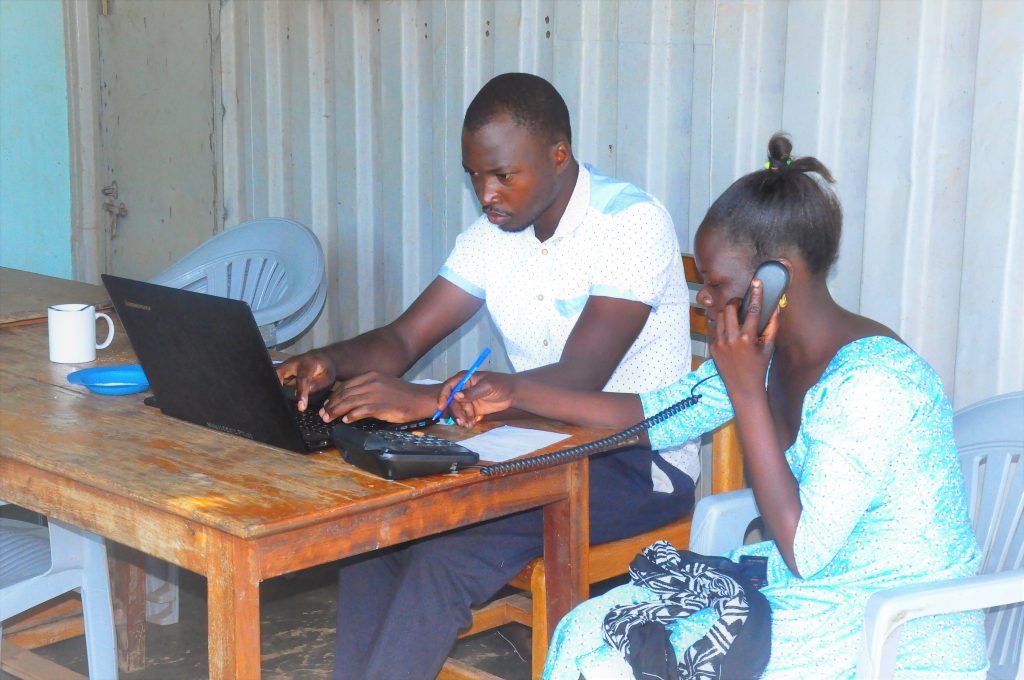The Aidsfonds COVID Response: A Focus on People Living with and Vulnerable to HIV
Recently, we had the good fortune to “sit down” with Aidsfonds Executive Director (and FCAA Board Member) Mark Vermeulen. As with all HIV funding organizations, his has had to be very flexible in the face of COVID-19. By all indications, it is doing an excellent job in continuing to reach people living with and vulnerable to HIV, in particular through its COVID Response Fund, which supports existing grantees and partners with flexible, rapid, and short-term funding. Below, Mark offers some insights and advice for funders on balancing COVID-19 and HIV.
Q: Aidsfonds has always focused their efforts on people living with or vulnerable to HIV. How have these populations been impacted by COVID-19?
The lockdowns and curfews have disastrous consequences for the more than 37 million people who live with HIV, but particularly for vulnerable populations – young people and, in particular, young women, children, men who have sex with men, transgender people, sex workers, and people who use drugs.

In Kenya community health volunteer Margret (r) hands out food items to a family affected by HIV and in need due to loss of income. Without regular meals ARVs are not as effective and cause side effects, leading to discontinuation of treatment regimens.
We are hearing from our partners about isolation of communities and lack of access to testing, treatment, and services. With flights cancelled, the import of antiretrovirals (ARVs) was blocked into countries. Many people can no longer travel to health clinics because of lockdown and curfews and loss of income and, even when they can, there are stock-outs of ARVs leaving people without life-saving medicines. Or, they have no access to nutrition, so their HIV medication does not work properly. There are shortages of protective equipment (PPE) and little to no investment in the well-being of community health workers. In many countries, myths and misconceptions about COVID-19 and HIV are widespread, and accurate information is not reaching vulnerable populations.

Community health volunteer Jonathan from Uganda regularly moves from door to door to find children affected by HIV and to enroll them in HIV care. Recently trained on COVID he now also provides reliable information about COVID whereby social distancing is respected.
Some governments have taken drastic measures and restricted the movements and rights of certain groups of people, for example by imposing social isolation or quarantine. International human rights organizations report that governments have shortened regular decision-making procedures and introduced martial law without end dates. The flow of information is strictly controlled by the government and there is a lack of transparency.
Q: How has Aidsfonds been able to pivot and change its work to respond to COVID-19?
Our immediate response was to be as adaptable as possible in our current partnerships. We set up the Aidsfonds COVID Response Fund to support existing grantees and partners with flexible, rapid, and short-term funding for activities that mitigate the impact of COVID-19 on people living with, or vulnerable to HIV. We have taken steps to make the grantmaking process as flexible and responsive as possible, including transferring 100% of funds at once (rather than in parts), using simple contracts and templates, increasing online accessibility and with only a seven-day turnaround time .
Currently we have funded over 50 projects and allocated over €460,000 in over 30 countries. The funding has addressed:
- Emergency needs such as the transportation and procurement of ARVs, nutritional support, and PPE. We’ve supported grantees piloting new ways of getting commodities to people via bikes, mail, and other transportation, as well as finding ways to get larger supplies of items (i.e. a three-month supply at one time vs. a one-month supply). Some grantees are doing work to advocate opening up borders to increase ARV supplies, as well as to help ensure that emergency aid processes are inclusive for key populations.
- Supporting psychosocial services for healthcare workers, for example airtime for healthcare providers to do over the phone counselling, as well as access to internet and IT equipment.
- Funding for advocacy and communications, including access to accurate information on COVID-19 and HIV to counter the volume of myths and misinformation.
- Efforts to establish mechanisms to combat sexual and gender-based violence, for example setting up crisis response systems and hotlines.

In Uganda peer counselor and youth volunteer Peter delivers ARVs by bike to people who cannot travel to the health facility for a refill due to COVID restrictions and lockdown. (FYI His full story is available here: https://aidsfonds.org/news/delivering-vital-medication-by-bicycle)
We also saw the need to share the stories of our partners and communities with wider audiences to raise awareness, share lessons learned, and do joint advocacy in the Netherlands and on an international level.
[Editor’s note: Check out the Aidsfonds Communities Speaks Out on COVID-19 page].
Q: What have you learned? What lessons would you share with other funders?
Five crucial lessons we learned from this experience that might benefit other funders include:
- Working with existing or recent partners required less due diligence on our part.
- We allowed maximum flexibility in current contracts. Our partners were able to make changes as long as they were in line with the partnerships’ goal. It is important to note, though, that this flexibility requires good coordination internally, with both donors and with partners.
- We stuck to our own vision and mission. The Aidsfonds COVID Response Fund was based on the needs of key populations, women, young people and children, and our long-term goal preventing new HIV infections and improving access to treatment for all.
- Funding goes fast in a crisis situation. For example, we allocated half a million in only a few months. It is important to fundraise for additional resources in the context of an emergency.
- Having a cross-functional team is critical to responding to such an emergency. We had program and finance staff doing the coordination and grantmaking, and the marketing and communications and advocacy staff involved in fundraising and raising awareness.
Q: Has the pandemic and your organization’s response made you think differently about your future work?
Our rapid response to the pandemic focused on the importance of being flexible and responsive. Now, we are looking into a more sustainable, long-term response that, in the context of the new pandemic, ensures HIV prevention and treatment services are guaranteed.
This experience has highlighted that leaders all over the world are now showing strong political will to invest in the health of their populations. This should translate into serious resources allocated to fighting COVID-19, while continuing to combat HIV and other communicable diseases, achieving Universal Health Coverage, and ensuring health systems are much better equipped to deal with people’s overall health needs, including when pandemics hit.

Through phone call contact community health workers in Uganda manage to reach out to people living with HIV to ensure continued access to essential HIV services and treatment. (FYI Full story available here: https://aidsfonds.org/news/impact-of-aidsfonds-covid-response-funding-in-uganda )
We know that when communities have space, capacity, and resources to mobilize — while being empowered — great strides can be made. However, experience has showed us that key communities often take a backseat. That can no longer continue to be the case.
These events have also offered concrete evidence that the fight for Universal Health Coverage must be shaped by lessons from the HIV response. And it must be inclusive of key populations and people living with and vulnerable to HIV/AIDS. We need to call on governments to continue to invest in health system strengthening, especially in the countries hardest hit.